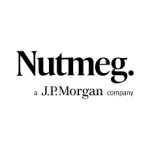A Saver’s Guide to Structured Deposits
Structured deposits have experienced a rapid rise in popularity on the back of a sustained period of record low interest rates and falling savings rates. Fixed rates are under pressure and with the continued uncertainty around inflation and the cost of living often rising faster than the increase in workers and pensioner’s earnings, many savers are turning to investing in order to try and meet the increasing demands from their capital. But there is a middle ground that does not put your capital at risk – the structured deposit. So that you may better understand this alternative product range and to help you find out whether they could compliment the other savings you have, we have put together our Savers Guide to Structured Deposits.
Savings rates reality
The mainstay of many a saver’s portfolio has historically been the fixed rate bond. However, rates here have been under continued pressure as banks have been able to secure cheap funding by alternative means. This means long gone are the days where committing your money for longer was all you needed to secure a high return that also had the potential to outstrip inflation. With many maturing fixed rate bondholders facing significant falls in the yields available, longer term fixed rates are in many cases failing to meet the needs of savers.
In addition to investing some of this capital to try and make it work harder, at the other end of the risk spectrum this has also resulted in a worrying trend of many savers shoring up more money than they normally would in instant access accounts. With many of these failing to offer rates anywhere close to inflation, savers are losing money in real terms – and that’s before the impact of tax is taken into account. So savers continue to face the toughest of decisions – either lose money in real terms from a savings account or take on more risk – and it is against this savings rates reality that the structured deposit has risen in popularity.
What are structured deposits?
Structured deposits are fixed term deposit accounts paying a return linked to the performance of an underlying investment, often the FTSE 100 Index or several shares in FTSE 100 listed companies. They therefore typically offer higher potential returns than a cash deposit, but also involve taking on more risk since unlike instant access accounts and fixed rate bonds, the return from a structured deposit is not guaranteed. They normally have a term of around five or six years although some also have the ability to mature early each year.
Who are they for?
Since your return is not guaranteed, they are for savers who are willing to give up the interest on a standard deposit for a potentially higher return linked to the performance of an underlying investment.
Key Features
There are a number of different types of structured deposits available in the market and it is important to fully understand how each plan works before committing your capital. The most common features are as follows:
They are meant to be held for a fixed term
Once you have made your deposit, you will not be able to add more money during the fixed term. Equally, you will be expected to leave your deposit in the account until the end of the fixed term. Most structured deposits allow you to withdraw your money early if you need to, but this could mean you receive less than you originally put in, so it is important that you only put money in a structured deposit if you are confident you can afford to keep it tied up for the full fixed term, even if the plan has the opportunity to mature early.
They protect against negative returns
If you hold a structured deposit for its full term, you will receive back at least your original deposit, regardless of what happens to the stock market or interest rates. This gives you less exposure to stock market falls than if you were holding shares directly or within an investment plan or fund.
They may be covered by the Financial Services Compensation Scheme
The Financial Services Compensation Scheme (FSCS) is an independent body, set up by the Government, that offers compensation when you lose money as a result of a participating financial firm (also called a counterparty) going bankrupt. Deposits, including structured deposits, may be covered by the scheme which means that if the bank or building society holding your structured deposit were to go bankrupt and fail to fulfil its legal obligation to return your deposit in full, you may be eligible for FSCS compensation if it is a member of the FSCS.
For deposits, the FSCS scheme protects up to £85,000 per person, which covers all deposits (current and instant access accounts, fixed rate bonds and structured deposits) that you hold with that firm and with that firm’s group as a whole. So if you already hold up to £85,000 savings with a bank or building society, and then buy a structured deposit with the same bank or building society or one within the same group, you would only be able to claim £85,000 in total should it go bankrupt. There are specific rules about when you can and cannot claim compensation, full details of which can be found at www.fscs.org.uk.
Their returns can be tax free within an ISA
The return you receive from a structured deposit is subject to income tax, the rate of which will depend on your personal status. However, many structured deposits are also available for current tax year ISA subscriptions or the transfer of previous or current annual ISA allowances. By holding your structured deposit in an ISA you will not need to pay income tax on any returns.
They have subscription deadlines
Structured deposits are usually only available during a specific offer period – usually 6 to 8 weeks long. If you miss the deadline, you will not be able to take out that particular structured deposit. However, most providers will offer a new structured deposit with similar terms soon after. The returns on the new structured deposit may be different from the previous one, depending on how markets have moved in the meantime. They could therefore be better, the same, or worse.
What are the risks?
It is important that you understand the risks of structured deposits before parting with your savings. The following are the main risks associated with structured deposits:
You must be prepared to commit your capital for the full fixed term
A standard cash deposit account will repay your deposit in full, regardless of when you withdraw, but structured deposits are different because their value during the fixed term depends on many factors, including interest rates, the creditworthiness of the deposit-taker and any ups and downs in the value of the underlying investment to which the return is linked. This means the amount you get back if you have to take money out early could be less than the amount you put in. Some provides may also charge an exit fee for early withdrawal.
There is a risk that you will receive no return on your deposit
For example, if your return is dependent on how the stock market performs, and it fails to perform as required during the term, then your return could be zero (assuming there is no minimum return) so you will just get back your original deposit. In this case you would have been better off putting your money in a standard deposit account paying a fixed or variable interest rate. You must be comfortable that this is a risk you are willing to take, and that receiving no interest at all would not cause you financial difficulties. You should also check how returns are calculated over the period of the product and whether this is based on specific points in time or averaged over specific timeframe.
Inflation could erode the value of your deposit
Inflation is the rise in the price of goods and services over time, the benchmark in the UK being the Consumer Price Index. Any rise in this Index means that your money will be able to buy less in the future than it does today. If you were to put money in a structured deposit and there was high inflation over the fixed term, your deposit at the end of the term would be worth less than it was at the start of the term. Of course, this risk also applies to any savings or investment product that is not inflation-linked.
Risk warning for savers
With the current savings dilemma facing savers, perhaps the warning that should be made by every provider before a customer buys a cash based product is to make it quite clear that they could lose money in real terms unless their returns keep pace with inflation. The risk here is what could happen in the coming years rather than the coming months. The impact of inflation, especially over time, is something which not enough savers put sufficiently high on their priority list prior to taking action.
Fixed rate bond alternative
With the typical term of a structured deposit being around five or six years, a reasonable benchmark for comparing the potential return on offer is the equivalent return on offer from a fixed rate bond with the same duration. Savers can then decide whether the potential upside is worth the additional risk of receiving only your capital back.
Don’t forget the Cash ISA
Structured deposits are usually available within a Cash ISA and are therefore eligible for current year Cash ISAs as well as to receive Cash ISA transfers which protect the existing ISA status of your capital. Always remember to check whether there is any penalty to transfer before proceeding. With the ability from 1st July to transfer Cash ISAs to Investment ISAs and vice versa, this option should become more useful over time and structured deposits can offer savers a middle ground between traditional cash products and a capital at risk investment.
Main advantages
- Potentially higher returns than can be achieved with standard cash deposits accounts
- Can be available as a Cash ISA
- May be covered by the FSCS
Main things to think about
- Returns are not guaranteed
- You must be prepared to tie up your money for the full term
- Inflation is a risk
- You cannot add to your deposit during the term (although you can open a new one)
- There may be a risk that you receive no return if the bank defaults, subject to FSCS
Structured Deposit checklist
Before deciding to put money in a structured deposit, check that you have CLEAR answers to the following questions about the risks and how the product works.
C = Counterparty
Where is your money going to be held? Are you confident about the ability of your chosen bank or building society to return your deposit in full? Check whether you would be protected by the FSCS if the deposit taker goes bankrupt.
L = Length
How long is the structured deposit term? Are you happy that your money will be tied up for this period, which may be several years? Do you have enough for other needs and emergencies during the term?
E = Exposure
What is the structured deposit exposed, or linked, to? This may be a stock market index, such as the FTSE 100, or perhaps a basket or FTSE 100 company shares. Are you happy that your returns will be connected to something else in this way?
A = Access
What happens if you need to get access to your money before the end of the structured deposit term? Will you get your full deposit back, or could you lose some or it and if so, how much? Check the specific terms of any plan you are considering.
R = Returns
Do you understand how your returns or interest will be calculated? A structured deposit should always specify this, based on the performance of the underlying investment it is linked to. What is the minimum amount you could receive at the end of the term?
Compare structured deposit plans here »
Compare structured deposits that can mature early »
Compare income structured deposits »
Compare growth structured deposits »
No news, feature article or comment should be seen as a personal recommendation to invest. Prior to making any decision to invest, you should ensure that you are familiar with the risks associated with a particular investment. If you are at all unsure of the suitability of a particular investment, both in respect of its objectives and its risk profile, you should seek independent financial advice. Please note that tax treatment depends on legislation and your individual circumstances which may change in the future.
Although structured deposit plans are capital protected there is a risk that the company backing the plan or any company associated with the plan may be unable to repay your initial investment and any returns stated. In this event you may be entitled to compensation from the Financial Services Compensation Scheme (FSCS), depending on your individual circumstances. In addition, you may not get back the full amount of your initial investment if the plan is not held for the full term. The past performance of the FTSE 100 Index and any of it shares is not a guide to its future performance.
Tags





